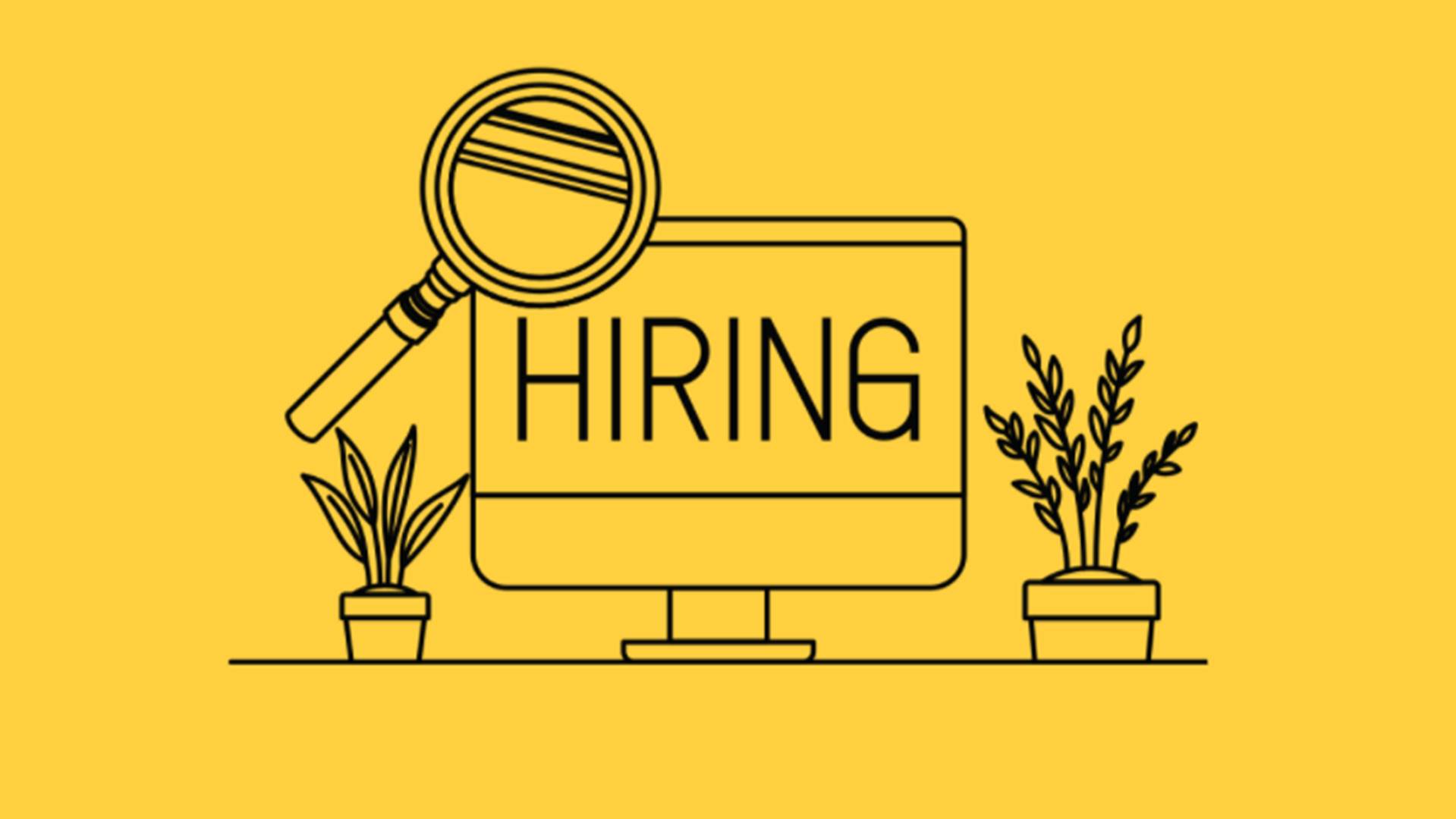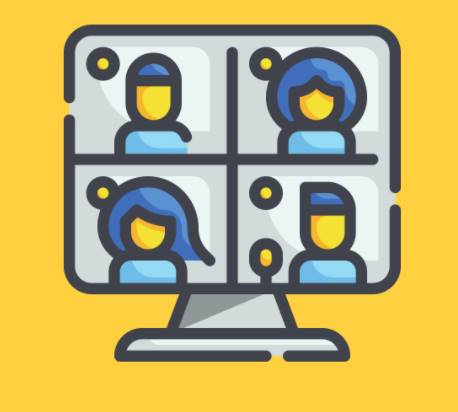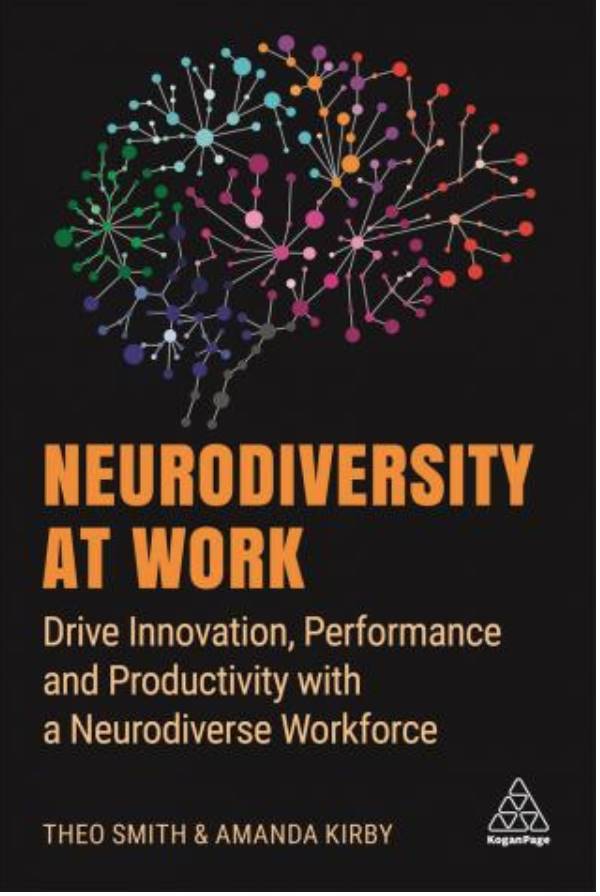One huge change that has happened during Covid-19 has been the flip to and the necessity for many of us having to work from home

This has meant hiring has taken place across a computer instead of across a desk. Many students leaving education who want to apply for jobs now or in the future will need to be confident to participate in all stages of the virtual hiring processes.

Interviews whether face to face or online can present different challenges for neurodivergent talent. Face-to-face interviews, while costly in time and money (for the applicant) can sometimes be easier to gauge the responses or requests from interviewers. However, finding your way to the place can be exhausting. But you can take the temperature of the room!
For the applicant, online interviews may be harder to pick up on non-verbal cues, such as knowing when to start and stop talking. It can be difficult knowing whom to look at in an online panel or to be sure you are looking like you are looking at someone!
Most of us feel anxious in a pressured and important situation.
How have you felt when the sound has disappeared halfway through an important conversation or your computer has decided to do that software update just before you are connecting with someone? Dogs barking, children crying, and the Amazon delivery man arriving just when you don’t want them, can all also add to feelings of stress too.
Goldilocks, diagnosing and Neurodiversity- getting it ‘just right’
Helping to focus on the task at hand
While it is nerve-wracking enough to focus on the questions being asked and considering a meaningful response, for some, having the additional burden of addressing the practicality of dealing with technology may make the interview too challenging.
Prospective hirers can help a great deal by providing some practical tips and hints beforehand to all applicants about how to be prepared. This represents good inclusive practice. By providing information on good preparation tips you may open the door to more applicants and be seen as a good and caring place to work. Providing information about the interview processes ( including any assessments) beforehand can also ensure that reasonable adjustments can be put in place.
This is especially important for those who have neurodivergent traits who may have some additional challenges with communication, working memory, language, and communication challenges. Poor past interview experiences will drive increased anxiety and lead to lost confidence. Consider what the job actually requires to ensure the interview aligns with this. If answering questions at speed has nothing to do with the job – do not score someone negatively for a slow response. Avoid hypothetical situations. If you using online psychometric testing is this taking out specific people with neurodivergent traits. How has the testing measured with performance in other cases? What does the information tell you?
The following are some tips, hints, and information for the panel and also for you to pass onto those preparing for the interview that may be useful. Some may seem obvious to you but I have found attention to detail and small adjustments can have a big impact!
Pre-interview
Provide information to the applicants about the following:
- Format of the interview.
- Time and session length.
- How many people will be on the panels/roles and names? Will the video cameras be expected to be on at all times?
- Consider providing questions beforehand- why not allow people to prepare? It’s not a memory test! Also, say it is fine to use notes if they want to.
- Say the system being used e.g. Zoom, GoToMeeting, Webex or Teams, etc. Offer a 5-minute system test run beforehand in case there is a need to download the application? (Check also how to unmute and turn on the camera beforehand.)
Neurodiversity and Resilience – ‘catch-up’ …. ‘bounce-back…what does this mean for some?
Asking for adjustments before the interview
- Be explicit about how someone can ask for adjustments and share information about a disability, health condition, or communication difference.
- Provide information on any assessments being undertaken and the format in case adjustments need to be made.
- Use Access to Work (through DWP) (in the UK) for assistance for virtual interviews.
- Ask the person what specific adjustments they require. This is person-led and not label-led! The person may require for example a spellchecker; additional time to respond to questions; responding to a question in writing, BSL support, or closed captioning (subtitles) if they have a hearing challenge for example.
Applicant Guidance
· Check software updates have been made on your computer, so this doesn’t suddenly happen during or just before the interview.
· Check the start and end times of your interview.
· Write down on a piece of paper contact details – name and phone number in case you have a problem before or during the interview with the internet access.
· Charge your mobile phone as a backup in case you need to make a call.
· If you have headphones, consider using them to cut out background noise.
· Think about where you are sitting and what is behind you!
· Limit the distractions around you that may mean you are looking at something else and not at the interview panel.
Hour before the interview
- If you have pets then take the dog or cat out of the room, if possible, as that may be distracting for you.
- Gather any notes and have a pen and paper ready if you need to write down questions.
- Log into the system and test it at least 30 minutes before if this is possible. Make sure you have your computer plugged in and your mobile phone by your side ( but turned to silent).
- Turn off other screens that you don’t want to share with others!
- Have a bottle of water or glass (that is not easy to spill over a computer) nearby.
- Go to the toilet.
- Turn your phone on silent and switch off any other alerting noises on your computers such as Skype or Outlook.
- Check the sound on your computer and have headphones ready if you will use them.
During the interview
- Sit in a position so you can focus on the dialogue and you are facing the camera.
- Address the person you are answering questions by name. Give examples of your skills and experience. Ask if a response is enough or would they like more detail.
- Take your time to respond. If you don’t understand a question, ask for clarification. If you are making a note of key points you want to say, then let them know that’s why you are looking down or away from the camera.
- Avoid making jokes in the interview as you don’t know other people’s circumstances.
Professor Amanda Kirby is an emeritus professor at the University of South Wales and CEO of Do-IT Solutions (www.doitprofiler.com). Do-IT delivers person-centered online tools that help neurodiverse people optimize their skills in education and in employment and training and consultancy relating to neurodiversity – helping embed policies and practices in reality.

She has co-authored a book with the wonderful Theo Smith coming out soon with many more tips and ideas to help-Neurodiversity at Work; Drive Innovation, Performance and Productivity with a Neurodiverse Workforce
Napomena o autorskim pravima: Dozvoljeno preuzimanje sadržaja isključivo uz navođenje linka prema stranici našeg portala sa koje je sadržaj preuzet. Stavovi izraženi u ovom tekstu autorovi su i ne odražavaju nužno uredničku politiku The Balkantimes Press.
Copyright Notice: It is allowed to download the content only by providing a link to the page of our portal from which the content was downloaded. The views expressed in this text are those of the authors and do not necessarily reflect the editorial policies of The Balkantimes Press.
